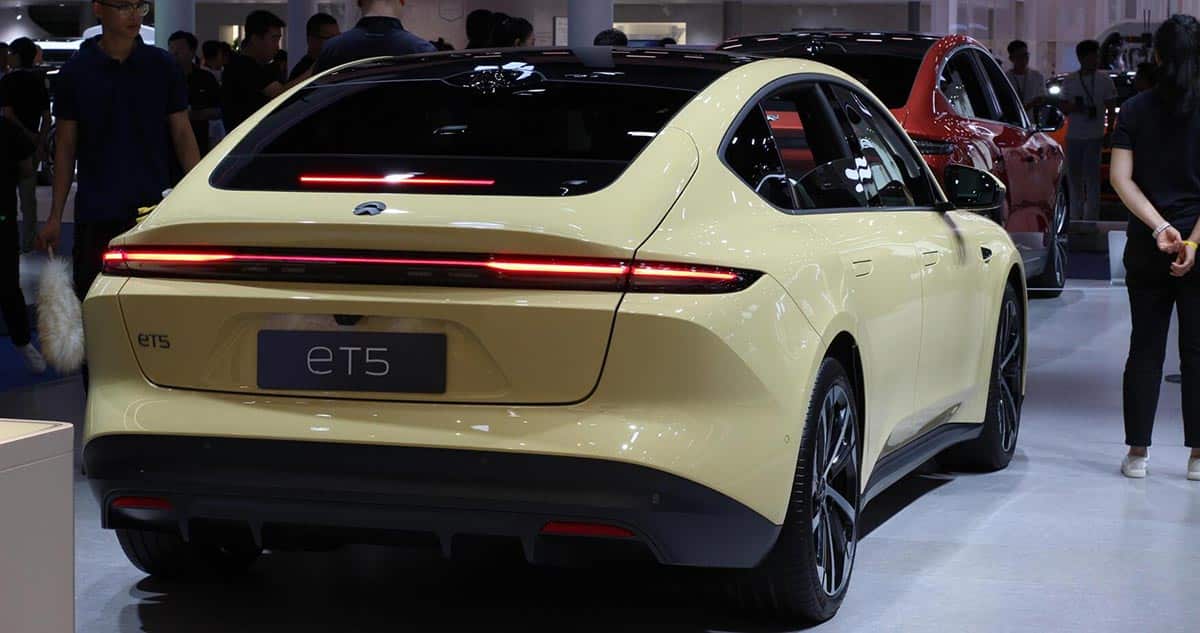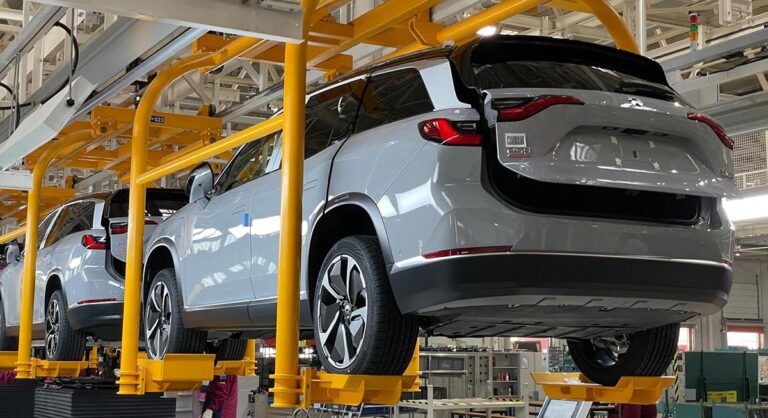Nio acquired Leopard in a government-coordinated buyout to qualify for vehicle production, and potential further acquisitions of two of JAC's plants will allow it to end its history of contract manufacturing, local media said.
(Image credit: CnEVPost)
The buzz over an announcement by Nio's (NYSE: NIO) vehicle manufacturing partner, Anhui Jianghuai Automobile Group (JAC), on the sale of plant assets continues, with a latest report providing more information.
Nio acquired defunct carmaker Leopard in Chuzhou, Anhui province, in a deal coordinated by government authorities to qualify for independent vehicle production, local media outlet 21jingji said in an October 23 report citing a person familiar with the matter.
With the car-making qualification, Nio could end its history of contract production by acquiring two factories of JAC, the person familiar with the matter said.
The Anhui provincial government and other authorities had been coordinating resources, communicating with parties including the state economic planner National Development and Reform Commission, and companies which have production qualifications, to move the matter forward, according to the report.
It seems logical that Anhui would be helpful to Nio, whose capital city of Hefei saved the company in 2020 with an investment it provided when Nio was in dire financial trouble.
Nio, which has its global headquarters in Shanghai, then set up its China headquarters in Hefei and joined hands with the local government to push for the construction of NeoPark and bring in a number of parts suppliers to the massive industrial park.
On October 20, Nio co-founder and president Qin Lihong joked when referring to the company's cooperation with the Hefei municipal government, saying that William Li, the company's founder, chairman, and CEO, had become Hefei's senior investment promotion commissioner, according to a video released by several media outlets.
With Nio's help, 40 to 50 companies have brought their production to Hefei, according to Qin, who also joked that the Hefei municipal government has given Li an incentive higher than his salary at Nio.
21jingji's latest report echoes an earlier report in February by another local media outlet, Cailian, which said Nio's vehicle assembly plant for its third brand, internally codenamed Firefly, would be located in the Chuzhou Economic Development Zone.
The plant integrates Leopard's original factory, Cailian's earlier report said, citing a Chuzhou government source in charge of recruiting business investment.
Leopard, which originated in 1950, once sold more than 100,000 units in 2017, making it China's largest SUV maker. In 2021, the company filed for bankruptcy, after business conditions continued to deteriorate.
The automaker's factories in several regions have been taken over by other automakers, while the plant in Chuzhou has been nationalized, Cailian noted in the February report.
In June 2022, the investor in Anhui Leopard Automotive Co Ltd changed to an entity controlled by the Chuzhou Municipal Finance Bureau, information from data provider Tianyancha showed.
JAC released plans on October 19 to transfer billions of yuan worth of plant assets, which were placed in three packages.
Although JAC did not mention Nio, local media outlet National Business Daily reported that the assets were Nio's F1 and F2 plants, and Nio said the move of its vehicle production partner would not affect its operations.
The National Business Daily report also said Nio may acquire the assets JAC plans to transfer and seek its own EV production status.
The latest 21jingji report cited an industry source as saying that the buyer in the deal could be more than just Nio, with JAC putting the assets in three packages to help sell to different buyers.
Taking over all of the assets transferred by JAC would put a cash flow strain on Nio, though a person close to Nio said the EV firm is already in talks with new investors, the 21jingji report said.
On September 25, Bloomberg cited people familiar with the matter as saying that Nio was considering raising about $3 billion and had approached investors from the Middle East. Nio later denied the report, saying it was false.
For JAC, the sale of factory assets could ease the pressure on cash flow, the 21jingji report noted.
JAC posted a net loss of RMB 243 million after non-recurring gains and losses in the first half of the year, while net cash flow from operating activities was RMB 582 million, down 5.37 percent year-on-year.
During the past few years, JAC has accumulated losses of nearly RMB 10 billion, with government subsidies being an important source of revenue, the report noted.
The transfer of assets valued at more than RMB 4 billion will bring JAC a substantial amount of revenue, which will help optimize its asset structure and improve its current financial position, the report said.

